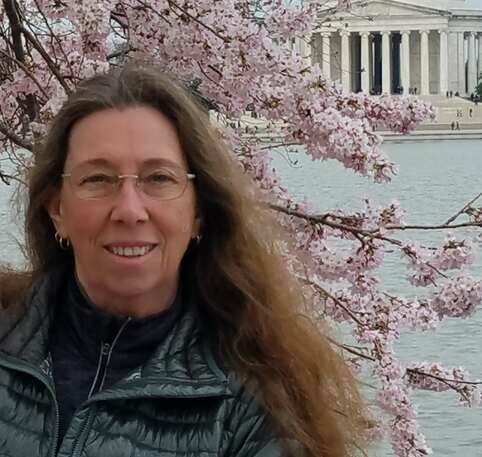The race for Legislative District 10, Position 1, has whittled to two candidates on opposing sides of the political spectrum.
In the primary election, Clyde Shavers, a Clinton Democrat running for reelection, led the charge with 52% of the vote. Carrie Kennedy of Coupeville received 26.4%, beating out fellow Republican Yvonne Gallardo, who got 12% of the vote.
Despite the gap between Kennedy and Shavers, Kennedy said she is proud of the primary results.
According to Kennedy, who describes herself as a Navy Seabee wife and mother, Shavers is the reason she ran for the position. Kennedy claims she is more honest than Shavers, who was accused by his father of embellishing his military record.
Shavers has said his father’s accusations were deeply partisan, and he chooses to focus on community healing rather than “punches.”
This difference in focus, on cooperation as opposed to division, is key between the two campaigns, Shavers said. Kennedy has come under fire for a 3-year-old violence-promoting tweet against a U.S. representative which resulted in Twitter banning her from the platform prior to its change in ownership.
Despite not wanting to talk about his opponent in an interview, in a campaign email following an Everett Herald story regarding Kennedy’s past tweet and other statements, Shavers’s campaign highlighted rhetoric allegedly made by Kennedy, labeling it as racist, antisemitic and transphobic.
Kennedy said these labels are in reference to lies and mischaracterizations in the article.
“Why does he bring this up now?” she asked. “He’s been running for how long and he says this now that a hit-piece article has come out.”
When drafting legislation, Shavers said, he emphasizes bipartisan support.
“Everything we do, every vote I take, every policy we draft and introduce, every time I stand up on the House floor is to try to break down the animosity and the polarization that we see here today,” Shavers said. “I don’t care if you are a Democrat or Republican or an Independent. We all need to come together.”
Kennedy too values bipartisanship.
“I am a Republican and constitutional conservative,” she said, “and I’ve always said the Constitution is not Republican or Democratic, and as a representative for the state, I have to and I will work for all people in my district.”
During the legislative session, Shavers passed seven bills that address this district’s priorities, he said, and co-sponsored over 30. These bills cover veteran and military assistance, environmental protection, rural communities and education.
Shavers is gearing up for the next session, he said, meeting with advocacy groups and stakeholders. For next year, he currently has drafted or is in the process of drafting nearly 20 bills.
Kennedy said she is less focused on new bills compared to changing what is currently in place.
“Why are we not looking at the laws that are on the books and trying to figure out how or what we need to do with that versus continuing to make more bills or more laws or whatever Mr. Shavers says?” she asked.
On Whidbey, the issues change and evolve in any given timeframe, Shavers said. Since the primary election, he has met with advocates to support those with intellectual and developmental disabilities, toured farms and volunteered at an elementary school in Oak Harbor.
Kennedy said that the state’s biggest issues can change on a weekly and even daily basis. Currently, she’s hearing worries about high taxes, law and order and safety and cost of living. She proposes an audit on state spending.
“I kind of look at this job as it would be like me running my household,” she said. “I have to know what my budget is. I have to know how I can spend money, what I should save for, that kind of thing. We’re using people’s taxes, and that is a huge concern.”
She also seeks to change Washington’s sanctuary state status.
“We can start focusing on the citizens, the legal citizens in this state and representing them,” she said. “And making sure that we’re in a good position, and then we go out and we help other people. It’s not the other way around.”
Shavers strives to maintain positivity.
“Campaigning can be challenging, and it can be exhaustive and all consuming,” he said, “but I think campaigning also provides that wonderful opportunity to meet with as many folks as possible. While we’re moving toward the (general election), I really hope people can realize and recognize that campaigns should be to bring people together, not to separate people into different groups, and that’s what we’re hoping to do.”
Ballots will be mailed to registered voters on Oct. 17.



